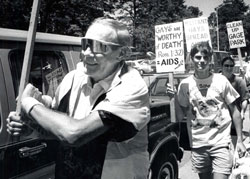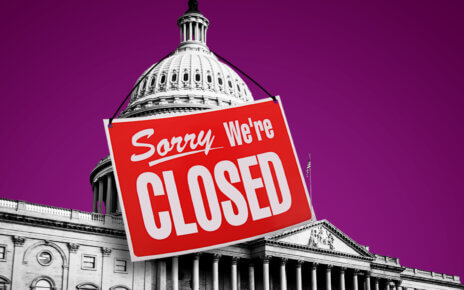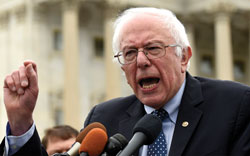Family Members Refused to Hold Funeral for Fear of Picketers
 Fred Phelps leader and founder of the Westboro Baptist Church (WBC) passed away Wednesday morning at the age of 84.
Fred Phelps leader and founder of the Westboro Baptist Church (WBC) passed away Wednesday morning at the age of 84.
Phelps founded the Church in Topeka, KS in 1955. Using the title of Baptist Preacher, he and the church have embodied the most intrusive anti-gay movement in America, protesting public events, and even picketing the funerals of gay veterans.
According to civil rights leaders in Topeka, Phelps was a prominent, and wildly successful civil rights attorney in the 1960s. He took on numerous cases for black Americans, that many attorneys would not touch.
The Phelps along with his church have received national attention for aggressively and openly opposing those of the LGBT community. According to CNN, they first made headlines in 1998 when the church picketed Matthew Shepard’s funeral.
Shepard, a college student in WY was tortured and beaten to death for being homosexual. The church held signs about the boy burning in hell, and others the likes of “GOD HATES FAGS.”
The pinnacle of the church’s movement came in 2006, when they were sued by the family of a U.S. Marine for picketing his funeral. The WBC claimed that he died because of the nation’s tolerance of gay people.
The case went all the way to the supreme court, where the justices found the church’s speech to be protected, it was an not invasion of privacy, because they opposed a national issue, nothing specific to the fallen soldier.
Reactions around the country have varied. His congregation dubbed the “Most Hated Family in America,” by BBC (referring to the 13 children and relatives of Phelps within the WBC) has been the focus of enmity for many in the LGBT community among others.
A liquor store in OK, Moore Liquor, known for humorous signs, put up a sign this week that read, “FRED PHELPS 1929-2014…CHAMPAIGNE 10% OFF…NOT A COINCIDENCE”.
Earlier this week, the daughter of Fred Phelps tweeted that the WBC would be protesting Phelps’s funeral. News reports revealed that the Twitter account was hacked, by a consistent persistent agitator of the church.
Dr. Joanna Foster, an assistant professor of sociology, said that she could understand why some human rights advocates may find it hard to feel sorrow for the death of a man who organized social movements to advocate denial of civil rights for LGBT people.
When asked about these groups proactive reactions Foster said, “I, myself, would not advocate protesting his funeral, both because it seems to me that such an action only gives legitimacy to the very behaviors that his opponents found repulsive, but because I think in this current political climate of real gains for LGBT rights, it would be strategically unwise to stoop to the lowest common moral denominator.”
Foster continued, “I certainly do not think that the public demonstrations of hatred against LGBT people as organized by the WBC are inconsequential. Like the Klan rallies that are protected as free speech, these demonstrations are not only statements of political and moral convictions but they walk the line of harassment and hate speech, in my opinion.”
Melia Owens, a junior social work major, thought that the churches action are result of, “upbringing.”
“[Some people] actually fear homosexuals. Fear what they don’t know or understand. Hate crimes, and other inconsiderate actions; It’s all related to ignorance. People are so close minded. But I can’t blame them, for the way they were raised.” She continued, “Now I don’t agree with the churches beliefs. I do believe they should be able to voice their opinions. We all deserve that right.”
Owens went on to say that it would be wrong to picket the funeral of Phelps as some LGBT groups were preparing to do. She said, “His hate should be met with respect and compassion. There is no need to stoop to the level of the [WBC]. It’s about being the bigger person here.”
There seemed to be a sure sense that “turning the other cheek” is not the morally right thing to do. Mukunda Alladi a junior accounting major, was initially undecided on whether people should picket Phelps funeral.
Alladi said, “The use of the word ‘fag’ and [judgement] of their sexuality. Don’t they deserve revenge?” He thought if a person was to show such hatred that they would not be respected in fair and just communities. He thought of the one here at monmouth.
Alladi concluded, “But, maybe the best thing to do is to show the [WBC] humanity. I look at the civil rights movement in the 60s. African Americans and whites stood together against the hatred. Homosexuals and heterosexuals have to stand together in the face of hatred.”
When asked about LGBT reaction to learning of Phelps’s death he had this to say, “It was Martin Luther King that said love can drive out hate. It’s not always easy [to love]. But it is worth it.”
Foster took an positivist approach, while looking at the church’s past. “I think that they could be effective in wrongfully shaming LGBT people at the same time that they may be effective in getting people of good conscience to take a stand against homophobia when they see something so outrageous as a sign that says “God Hates Fags” and people refusing to let LGBT people rest in peace, and their families mourn the loss of loved ones.”
Concluding all the controversy Phelps life and death was defined by, it has been the church’s decision not to hold a funeral.
Shirley Phelps Roper, daughter of Fred Phelps told CNN that they would not hold a service because, “We do not worship the dead.”



